For the first half of this year, almost every project I’ve worked on (with the exception of an unfinished short novel) has been a novella. It’s not a form I was familiar with when I first started writing, but I’ve come to enjoy it immensely, and look forward to writing much more in the future.
The technical definition of a novella is pretty simple, at least according to SFWA. It mainly has to do with word length:
- Novel — 40,000 words or more
- Novella — 17,500–39,999 words
- Novelette — 7,500–17,499 words
- Short Story — 7,499 words or fewer
That one simple distinction leads to a host of other differences, though, since words and story length are so crucial to the different types of stories you can tell.
Short stories tend to be more situational. A good short story writer (which I am not) can use the form to explore all sorts of other story elements, but there’s always something of a tradeoff. A good short story will have strong characterization but a simplistic or nonexistent plot, or center around a compelling concept but not provide an immersive setting. It’s a very minimalistic form–there’s always something of a sacrifice.
A good short story can pack a real punch, but it doesn’t really immerse you in another world. It might resonate for a long time after you read it, but you finish it almost as soon as you start it. It’s a form that I enjoy in audio form, but don’t actually read very much. It’s great for the commute or a road trip, but not so great when I’m curled up in the lovesack looking to get lost in a book.
That’s just me, at least. And as for writing them, I need a lot more practice before I have anything useful to say on that.
With novels, it’s exactly the opposite. They are so expansive that they tend to have multiple viewpoints, subplots, character arcs, and setting elements all woven together in one sprawling whole. There are differences, of course, between a 200k word fantasy epic and a short 60k word thriller, but complexity is an important part of the form. It’s not enough to have an interesting situation, or a single mind-blowing idea–you have to have several, and they have to work together.
When done well, the effect can be tremendous. A good novel is much more than just the sum of its parts, and the climactic moments when everything comes together can be truly spectacular. They’re incredibly immersive, too–I’m pretty sure that some of my childhood memories are things that never happened except in the pages of a book.
But sometimes, it can be hard to get into a novel, either because it starts off slow or because from the very beginning it’s so complex. Also, it requires much more of an investment, especially in time. I can’t tell you how many novels I’ve checked out from the library, only to return a few weeks later with a hefty overdue fine on my account–not because I didn’t like them, but because I just couldn’t find the time to finish.
In terms of writing, all of that storytelling complexity can make the task positively gargantuan. It depends on the length of the novel, of course, but the longer it gets, the harder it is to keep everything straight. And when something is off and the story just doesn’t seem to be coming together, it can be incredibly difficult to figure out exactly what is broken. Even if it’s small, or something that’s easy to fix, you can easily find yourself revising in circles.
The novella falls more or less in the “Goldilocks” zone of these other forms. It’s long enough to give you the space you need to play with things on a novelistic scale, but short enough that you don’t have to worry about bringing all that complexity to the page.
Generally, I’ve found that there isn’t much of a difference between novellas and novelettes. I’ve dabbled with both, and found that the difference has more to do with brevity and less to do with actual structure or form. A well-written novelette can do all (or at least most) of the things a novella can do, just in a slightly more economical fashion. And of course, the differences in all of these forms is subjective and fuzzy. Your experience could very well be different.
But personally, I find novellas (and novelettes) much more fun to write because it allows me, sometimes even forces me, to get a lot more intimate with my characters and their individual points of view. A situation or idea alone is not enough to carry the story for the required length, but exploring multiple viewpoints (or at least more than two) tends to push the story too far. Consequently, I find myself really diving into my characters and trying to see things from their perspective.
It’s similar with novels, but without all the other subplots or character arcs, there are fewer distractions–and fewer ways to screw up. I can stay in the character’s head without having to break out to fix something else. Also, my first drafts tend to be a lot cleaner, with less need for massive substantial revisions. And even if the draft is irredeemable, I can toss it out and rewrite from scratch with a lot less pain, since it’s only 30k or 40k words.
So yeah, I really love writing novellas, which is something that would have surprised me only three or four years ago. There aren’t a whole lot of traditional markets to sell them to, but that doesn’t matter because they’re perfect for ebooks and self-publishing. It’s also a lot easier to take a loss on a perma-free novella than it is on a full-length novel.
I’ve found that I can write a good first draft of a novella in anywhere between two and six weeks. I wish I could do it quicker, but I’m not a very fast writer, so thirty days is a pretty good cap for a deadline. And because they’re shorter, they tend to be quicker to revise, and easier to hand off to alpha readers who will give you a good turn-around time for feedback.
For those of you who prefer more long-form stories, don’t worry–I haven’t given up on writing novels. In fact, I’ve got a half-finished epic fantasy novel that I’ll probably work on next, once Star Wanderers: Benefactor (Part VI) has gone through a major revision pass. But if you enjoy reading novellas as much as I enjoy writing them, then you’ve got a treat, because I’ve got a bunch of Star Wanderers novellas that will be coming out in the next few months!
And after that? Who knows …
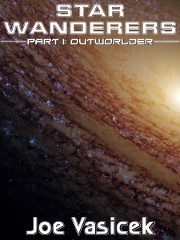
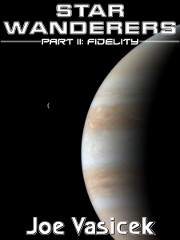
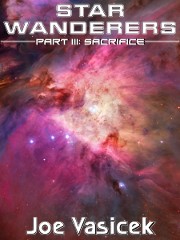
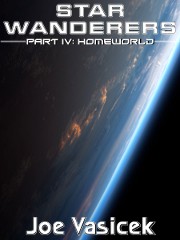
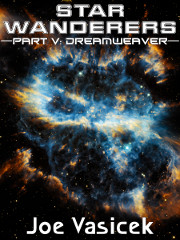
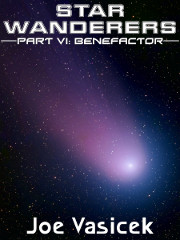
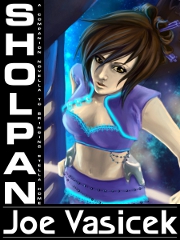
I get a kick out of the shorter works. There’s less of a heavy commitment to get started on any one book, and there’s the option to enjoy more if desired.